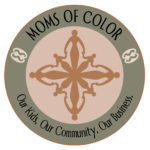
Politics has always played a crucial role in shaping the lives of African Americans. From the civil rights movement to the ongoing fight for social justice, political activism has been a key tool for advancing the interests of the Black community. However, while engaging in the broader political system is essential, there is an increasing recognition that African Americans must also work together to build and enforce their own political standards within their communities. By doing so, they can better address the unique challenges they face and create a more empowered and unified voice.
The Role of Politics in African American History
The history of African Americans is deeply intertwined with the struggle for political power and representation. From the abolition of slavery to the passage of the Voting Rights Act of 1965, political activism has been instrumental in securing basic rights and freedoms for African Americans. Leaders like Martin Luther King Jr., Malcolm X, and Shirley Chisholm understood that without political power, the community would remain vulnerable to oppression and inequality.
Today, the importance of politics remains undeniable. Voting, lobbying, and participating in the political process are critical for ensuring that the voices of African Americans are heard at local, state, and national levels. However, the mainstream political system often falls short in addressing the specific needs and concerns of Black communities. This has led to growing calls for African Americans to establish their own political standards and institutions that reflect their values and priorities.
The Need for Community-Based Political Standards
1. Addressing Unique Community Needs
One of the primary reasons for establishing community-based political standards is to address the unique needs of African American communities. Issues such as systemic racism, economic inequality, police brutality, and educational disparities require targeted solutions that may not always align with the broader political agenda. By creating their own political standards, African Americans can develop strategies and policies that directly address these challenges and improve the quality of life within their communities.
2. Promoting Self-Determination and Empowerment
Building political standards within African American communities is also about promoting self-determination and empowerment. Historically, African Americans have often been marginalized within the political system, with their concerns ignored or minimized. By establishing their own standards, Black communities can take control of their political destiny and ensure that their voices are not only heard but also acted upon. This approach fosters a sense of ownership and accountability, encouraging community members to become more engaged and proactive in shaping their future.
3. Creating a Unified Political Voice
A key challenge facing African Americans in the political arena is the fragmentation of their political voice. Diverse opinions and interests within the community can sometimes lead to division, weakening the collective impact of Black political power. By working together to establish common political standards, African Americans can create a more unified and cohesive voice. This unity is essential for advocating effectively for policies and initiatives that benefit the community as a whole, whether it’s in the realm of criminal justice reform, economic development, or education.
4. Influencing Broader Political Outcomes
While community-based political standards are focused on addressing local and specific issues, they can also have a broader impact on the national political landscape. As African American communities develop their own political frameworks, they can influence the platforms and priorities of larger political parties and organizations. By setting clear expectations and demands, Black communities can hold politicians accountable and ensure that their needs are not overlooked in the pursuit of broader electoral goals.
Steps Towards Building African American Political Standards
1. Grassroots Organizing and Education
The foundation of building political standards within African American communities lies in grassroots organizing and education. Community leaders, activists, and organizations must work together to engage residents in political discussions and educate them on the issues that matter most. This involves hosting town halls, workshops, and forums where community members can share their concerns, ideas, and aspirations.
2. Establishing Community Platforms
Once a foundation of engagement and education is established, African American communities can work towards creating their own political platforms. These platforms should reflect the collective values and priorities of the community and serve as a guide for political action. Whether it’s advocating for police reform, promoting economic justice, or supporting educational equity, these platforms provide a roadmap for community-led political efforts.
3. Building Political Alliances
While establishing independent political standards is important, it is also crucial to build alliances with other communities and organizations that share similar goals. African Americans can collaborate with other marginalized groups, progressive organizations, and allies to amplify their political voice and achieve common objectives. These alliances can help build broader coalitions that have the power to influence policy at all levels of government.
4. Holding Elected Officials Accountable
A critical aspect of building political standards within the African American community is holding elected officials accountable. This means regularly evaluating the performance of politicians and ensuring they are fulfilling their promises to the community. By creating mechanisms for accountability, such as community scorecards and public forums, African Americans can ensure that their elected representatives are truly serving their interests.
Conclusion
While participation in the broader political system is essential, African Americans must also focus on building their own political standards within their communities. By doing so, they can address their unique challenges, promote self-determination, and create a more unified and powerful political voice. The path forward requires grassroots organizing, education, and a commitment to collective action. By working together, African Americans can shape their political destiny and create a brighter future for their communities.
With Love, Lakischa Smith
Meet Lakischa Smith, a proud mother and a dedicated public health advocate. With a Bachelor’s from Dillard University and a Master’s in Public Health from Florida International University, she’s committed to sharing honest narratives about black motherhood. Lakischa believes in fostering sisterhood to combat the pervasive forces of white supremacy, and empowering African American women to be agents of change for future generations. She asserts that recognizing and addressing our community’s struggles is crucial, for healing is the key to moving forward. Armed with the power of education and a deep belief in collective action, Lakischa is determined to ensure that the issues impacting African American parenthood aren’t just seen—they’re addressed and resolved.










